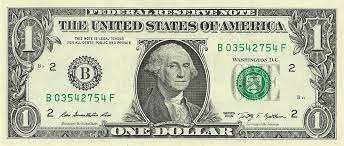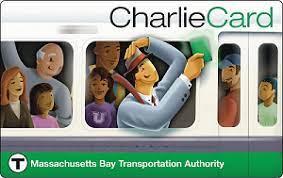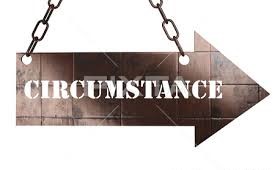HOME
ARTICLE
PAST ARTICLES
CONTACT WHAT IS MONEY?

Money, Money, Money

People's attitude about money can be extreme, ranging from money is the most important thing to who needs money, some people will lie, cheat, steal, and rob you for it, while others will donate their entire fortune to charity, a foundation, or to be used for some other benevolent purpose.
Most of us think and believe that we already know what money is, that it's the dollar bills (currency notes) and coins that we carry about in our pockets, wallets and purses, but is it, or is there more to what money is beyond what we think and believe, have been taught.
One would think that something so crucial and important as money, something that most of us must have if we are to live and function in today's modern society would be a primary subject taught in school, but it's not. We are taught the alphabet, history, science, English, math, reading, writing, etc., but not about money. Is that on purpose or just an oversight?
Thankfully we have the internet, and by using it we are provided the opportunity to tap into a reservoir of information and resources on the subject, all available at our fingertips. For example, in his YouTube documentary "Hidden Secrets of Money" author, Michael Maloney explores the subject of money with an emphasis on gold and paper currencies and the role each has played throughout history.
In his documentary he presents the argument that gold is the only true form of money while referring to government issued money as "fiat", which is currency that is recognized as money because the government declares it to be so, however, simply declaring something to be so doesn't make it so. But in Michael's documentary he does recognize and lists those attributes that currency and gold share in common and that is that, both are a medium of exchange, a unit of account, portable, durable, divisible, and fungible (interchangeable), but he also recognizes two key differences that distinguishes gold from currency; one is that gold is finite and two it is indestructible, whereas paper currency is neither.
Whether one agrees or disagrees with Michael's documentary and its take on currencies, the reality is that the majority of people recognize, use, and refer to currency as money using both words interchangeably, and for the sake of keeping things simple, that is the word I will use as I share and explain about money, what it is and/or can be.
At his point, I would like to share a few, brief simple examples of specific things that have been used and/or exchanged for money, and some of the reasons why, but first, it's important to understand that much (if not most) of our money is in digital form residing on computers in cyberspace i.e. the Internet.
Credit Card Points

Credit cards are one of the most widely used forms of digital money, just about everybody knows about them and even more people use them for making purchases and payments. Sometimes referred to as "plastic money" they are convenient to carry around and use, and if you have a credit card you probably earn points, those points function as money. Those points can be converted into physical cash via a mailed check that can be cashed, or placed on a gift card and spent, deposited into a bank account, or applied as a credit towards any outstanding balance owed.
So as one can see, credit card points can be used as money, although in a restricted way, but in regards to credit cards themselves being used as money, well, needless to say, some businesses will only accept credit cards as payment for purchases.
Notgelds, Coupons

During times of international or domestic war and conflict, social unrest and upheaval, many things come into vogue as money or that can substitute for it. In Germany during WWI, but more specifically during the nation's hyper-inflationary period, notgeld's were issued and used as emergency money by businesses, institutions, and even individuals when government money became worthless.
Wikipedia in defining notgelds states that, "some cases of Notgeld could better be defined as scrip, which were essentially coupons redeemable only at specific businesses." But a country doesn't have to be defeated by war nor its economy in crisis, neither does it have to be experiencing hyperinflation for cash proxies to come into existence.
Hyperinflation destroyed the value of the German mark after its WWI defeat, leaving its currency without any real purchasing power, as a result of ceasing to function as money other forms of money such as notgelds rose in its place.
Extrabucks

An example of a modern day notgeld would be a CVS Extrabucks rewards coupon which has cash value and can be used to purchase merchandise at any CVS store. Although these extrabucks have limitations such as they can only be used at CVS stores, have an expiration date, and can only be redeemed using the store's ExtraCare card, they nonetheless do have monetary value.
Even though these coupons vary in dollar amounts they are unlike most coupons that can only be used towards the purchase of specific items, Extrabucks on the other hand can be applied toward the purchase of any food or non-food item. The important point about these coupons is that, despite having restricted usage and not being emergency money, and being issued by a private business they still function as money i.e. cash. To lose one's Extrabucks or to let them expire is much like losing or forfeiting the use of physical cash.
Can & Bottle Vouchers

Like Extrabucks, aluminum can and plastic bottle vouchers represent cash, but unlike Extrabucks, physical cash is received when the cans and/or bottles are redeemed, that's cash that can be used to make purchases without restrictions and limitations, so we have two assets, aluminum and plastic being converted into another asset, cash. It should be noted that, in many instances cash is received directly (bypassing the need for a voucher altogether) when bottles and cans are brought to a redemption center that accepts them exclusively. Redemption centers will typically accept a wider variety of bottles and cans that a supermarket or convenience store may not, such as beer cans and bottles.
The redemption value of the return voucher i.e. how much one will receive depends on two things, the return deposit amount indicated on the can or bottle and how many are being turned in, the deposit amount will vary from state to state but is usually between five and ten cents. So literally there is money to be found on the sidewalk, in an empty lot, a recycle bin and many other places, particularly in large urban areas where discarded aluminum cans and plastic bottles can be found in abundance. These vouchers have value and are as good as cash, serving as a proxy for it, albeit in a different form, and like CVS Extrabucks, to lose the voucher is like losing physical cash.
Transportation Ticket/Card

Another example of a proxy for cash would be a prepaid transportation ticket or card that is issued by a local government transportation authority. In many instances these passes will have an expiration date, but despite that they can still be used as a barter item after they have money transferred onto them, at which moment they instantly have cash value.
What also gives these tickets and cards real, practical value is the fact that they allow the user to utilize his/her local transit system, whether it be bus and/or train, and for millions of people public transportation is their primary or only means of getting around the city or town they live in, thus making these tickets and cards invaluable as a form of money to be used as payment to access public transportation and to travel around locally.
Metals

It goes without saying that many metals are, can, and have been used as money, for example, coins are and have been made out of various types of metals such as gold, silver, copper, nickel, aluminum, zinc etc. Ask any of the millions of people who regularly redeem their aluminum soda cans for cash if its money, they'll tell you without having a degree in economics, finance, or investing that it is.
What gives metals their value is their usefulness i.e. what they can be used for, and those uses are MANY. Nickel is used to make stainless steel products like kitchen cutlery, bathroom fixtures, and medical devices as well as a host of other products. Copper is widely used in construction, plumbing, and for electrical wiring.
Speaking on how metals are money is the fact that, in most cases it is sold as scrap and cash is received, that ability for metal to be converted into cash gives it liquidity, this is particularly true with base metals but more so with precious metals like gold, silver, and platinum.
If a person decides to hold any quantity of physical metal two things must be understood when it comes time to convert it into cash, and that is price and weight. Metal spot prices fluctuate throughout the day and scrapyards will base their buying price around it, equally important is the total weight of the metal which will also be considered when determining an offer price, there are other considerations that come into play as well. The key point here is to show that physical metal has intrinsic value due to its many usages in industry and other areas, and therefore it can be viewed as money in a different form, or can be converted into it.
Metal as an investment being represented by stocks and other types of Wall Street securities, though not physical, is considered to have intrinsic value too, but should not be confused with having, owning, and using physical metal. One is represented by paper i.e. stocks, options, futures contracts while the other is real.
Lottery Scratch Tickets

Lottery tickets, more specifically scratch tickets, most people know about, even those who don't play the game or buy them. For millions of people the lottery is a pastime, something they may do only occasionally, but sadly for others it's a full blown addiction in which they find themselves spending hundreds, thousands of dollars or more on lottery tickets and other forms of gambling.
As far as being money, a winning scratch ticket can be worth one dollar or millions of dollars, therefore a winning ticket indeed has monetary value, and to lose a winning scratch ticket is again the same as losing cash.
Unlike other types of lottery tickets, scratch ticket winnings can be claimed (redeemed) by whomever has the ticket because they are not assigned and/or registered to any particular person, remember that a scratch ticket can be given to anybody as a gift, reward, or be found on the street, requiring no signature or paperwork. It's advisable though and may be required that the person sign the back of the ticket, particularly if the winnings are over a certain amount, in which case taxes will have to be paid. Also, it's important to know that scratch ticket winnings expire after about a year, afterwhich it can't be cashed in.
Circumstances

In nearly all cases, what can or will be used as money will be determined by the immediate circumstance(s) at the time, for example, a bottle of water has infinitely greater cash value and worth to a person who has a million dollars and is dying of thirst than the world's rarest coin, stamp, car, comic book, or diamond.
When our personal circumstances change for the better or for the worse, what we will value and accept as money and/or as payment for our time and labor will change as well. Whether it's a short or long term change, money will take on an entirely different form and meaning to us, based entirely on what we need or want at the time. Example, that vehicle that you saw merely as a form of transportation, after becoming homeless and your forced to live out of your vehicle, now has become your "mobile home"'. And so it is that (due to a change in your circumstances) that car, van, or truck has become more valuable to you than it was before.
The current financial crisis has been going on for years and will progressively get worst for most people as jobs are lost and living standards decline, no doubt this will result in a negative change in people's circumstances, especially as people lose money through their investments and/or retirement accounts and it becomes more difficult to make money. And as money becomes more tight this will have a direct impact on people's attitude and perception about it, what becomes valuable to people will not necessarily be paper money but rather those physical things they need to live and survive, that money can buy.
Of course the above is already true, but it will become a more pronounced and hyper-inflated situation as people are scrambling and desperately trying to survive in an economy and financial system that are both in free fall. This is not to say that cash (for now) is not needed, but in such an environment having and owning the right physical things i.e. assets will become the new money (and used as such) in different ways by different people under different circumstances. But it's important to remember that to the extent a person's circumstances are negatively or positively impacted by this ongoing and in many ways "quiet" crisis, will determine what these things will be, for example, a roll of toilet tissue vs. a cigarette lighter.
When we come to understand more clearly how that, at any moment, a subtle or drastic change in our circumstances can change what we need and/or want, then we will also come to understand more clearly that "money" becomes contingent, relative, and subjective based upon the prevailing circumstance at the time, personal or otherwise.
FEEDBACK
Feel free to share your comments on this article by clicking the link below.